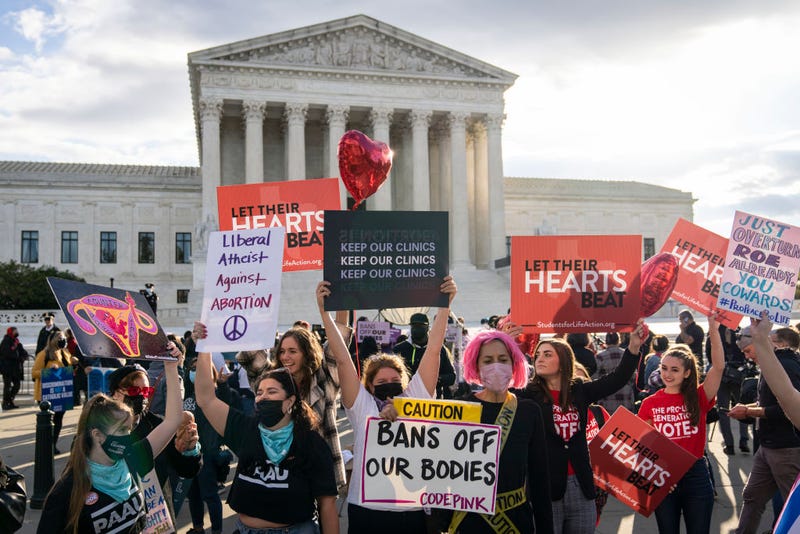
While the Supreme Court refused to block a Texas law that bans abortions after the detection of a fetal heartbeat, it did decide Friday to allow a challenge to the law.
This court ruling paves the way for abortion providers to sue the state, even though the law – Senate Bill 8 – makes it difficult. A Sept. 1 ruling by the conservative-leaning court allowed the law to go into effect.

That ruling said abortion providers who challenged the law in an emergency application had not made their case in the face of “complex and novel” procedural questions. However, the majority stressed that it was not ruling on the constitutionality of the Texas law.
"The Supreme Court has once again failed to put an end to Texas’s bounty hunting scheme and protect our constitutional rights," Planned Parenthood tweeted.
"The Supreme Court DISMISSED the Biden admin's lawsuit against the Texas Heartbeat Act!" Texas Right to Life tweeted Friday. "Abortionists' lawsuit will continue in the lower court."
Roe vs. Wade, a landmark 1973 Supreme Court case, allows for abortions up to fetal viability, which is around 24 weeks into pregnancy. A state judge in Texas ruled Thursday that the six-week ban violated the state constitution.
Since the September Supreme Court ruling, many women seeking abortions have traveled out of Texas to get abortions, as the heartbeat stipulation prevents most abortions further along than six weeks, before some women know they are pregnant. It does not have exceptions for rape or incest.
Senate Bill 8 allows private individuals from anywhere in the country to sue anyone who performs or aides in abortion procedures. It does not allow state officials to enforce abortion restrictions or private individuals to sue patients.
“After the law’s adoption, various abortion providers sought to test its constitutionality,” said Supreme Court documents. “Not wishing to wait for S. B. 8 actions in which they might raise their arguments in defense, they filed their own pre-enforcement lawsuits. In all, they brought 14 such challenges in state court seeking, among other things, a declaration that S. B.
8 is inconsistent with both the Federal and Texas Constitutions.”
These cases were consolidated and a summary judgment ruling said abortion providers “prevailed on certain of their claims.”
Even though state officials are not allowed to enforce the law, Friday’s court ruling allows abortion providers to sue some state officials in federal court. Texas licensing officials may be sued, per the ruling, while state court judges, court clerks and Attorney General Ken Paxton may not.
Justices voted 8 to 1 in favor of allowing the clinics’ lawsuit against the ban to proceed. Only Justice Clarence Thomas voted against it.
Steve Vladeck, Charles Alan Wright Chair in Federal Courts at the University of Texas School of Law, says many providers may not reopen because, even though the Supreme Court voted 8-1 to allow lawsuits to continue, the court voted 5-4 to also allow enforcement to continue.
"The reason why that is such an important distinction is because the providers won't be able to open their doors until and unless they can be reasonably confident these suits under SB8 against them are going to stop," he says.
Vladeck called the ruling "ominous," saying the case could lead to Texas and other states trying to "frustrate" judicial review in other situations.
"There's no reason the Texas legislature couldn't apply this to other rights, why other states couldn't follow suit," he says. "We end up in this very worrying and troublesome place where our Constitutional rights, whatever they are, are up to the whims of each state legislature and not the federal courts. That's a world in which Constitutional rights are going to mean something very different in Texas than they do in New York or California."
LISTEN on the Audacy App
Sign Up and Follow NewsRadio 1080 KRLD


